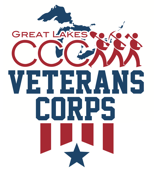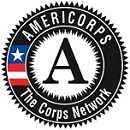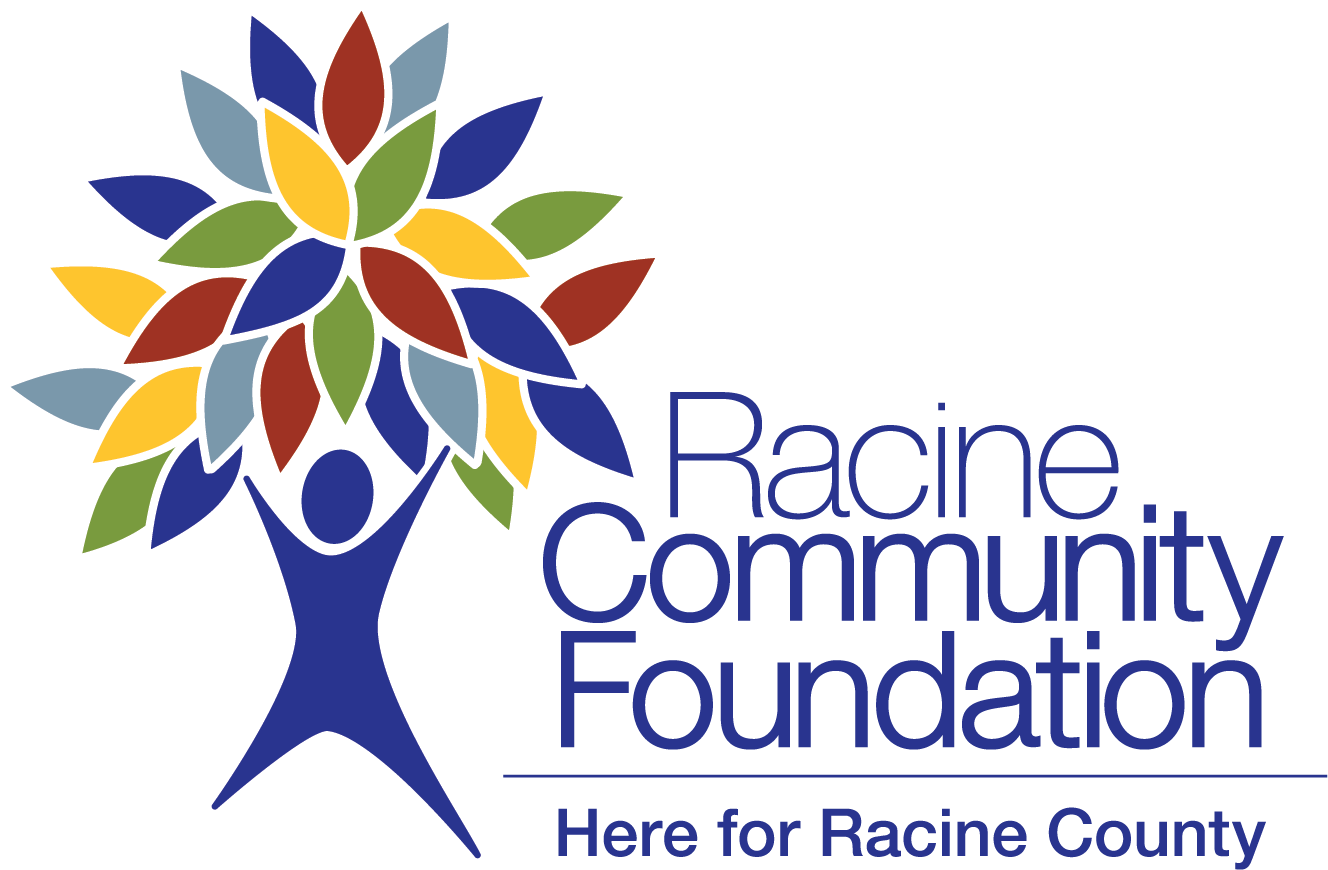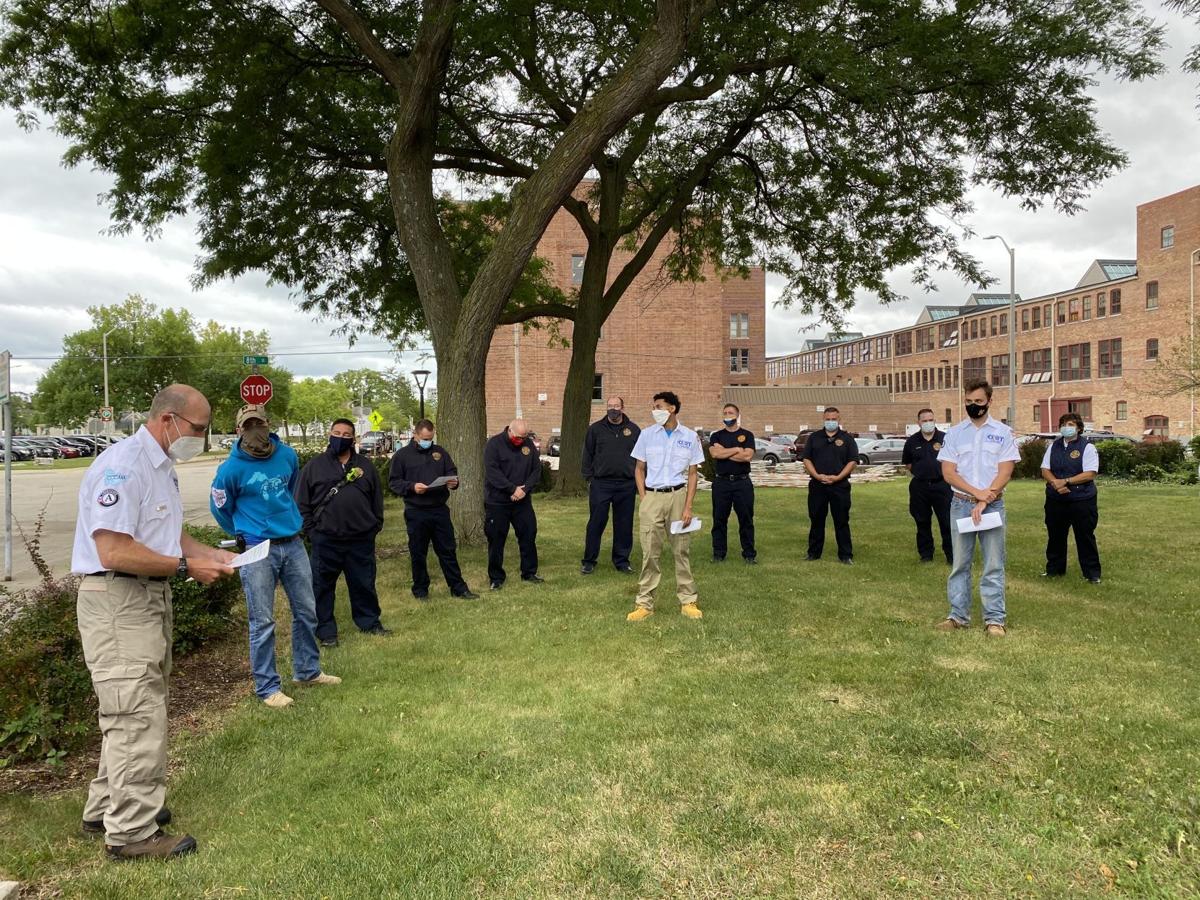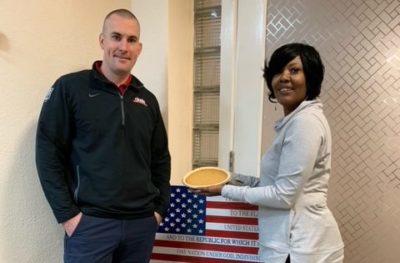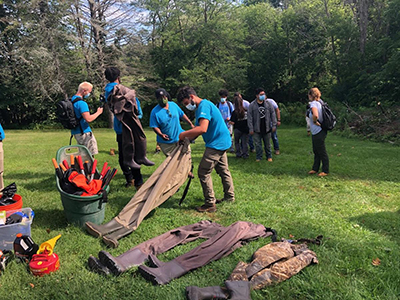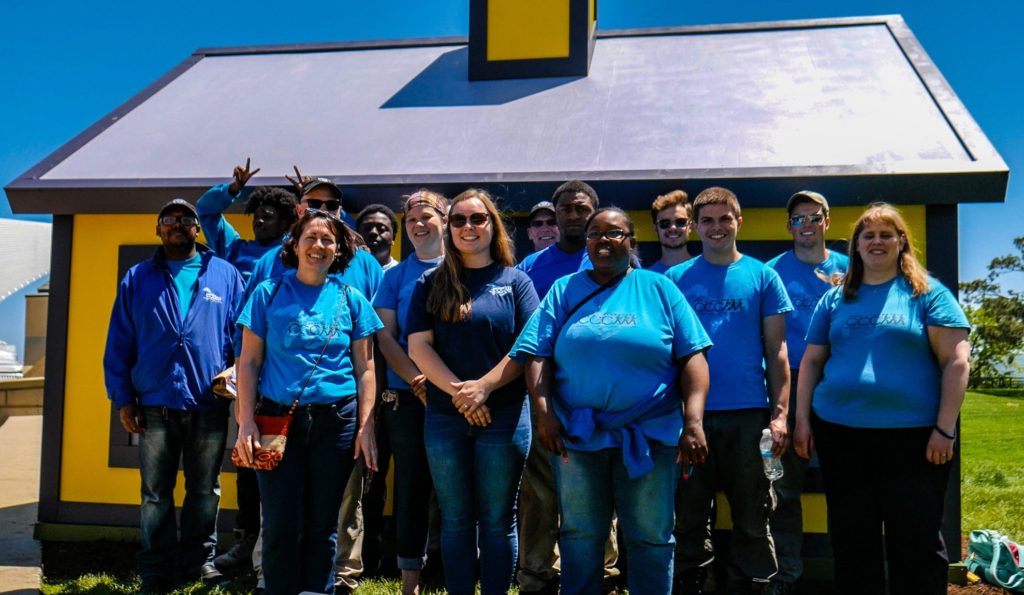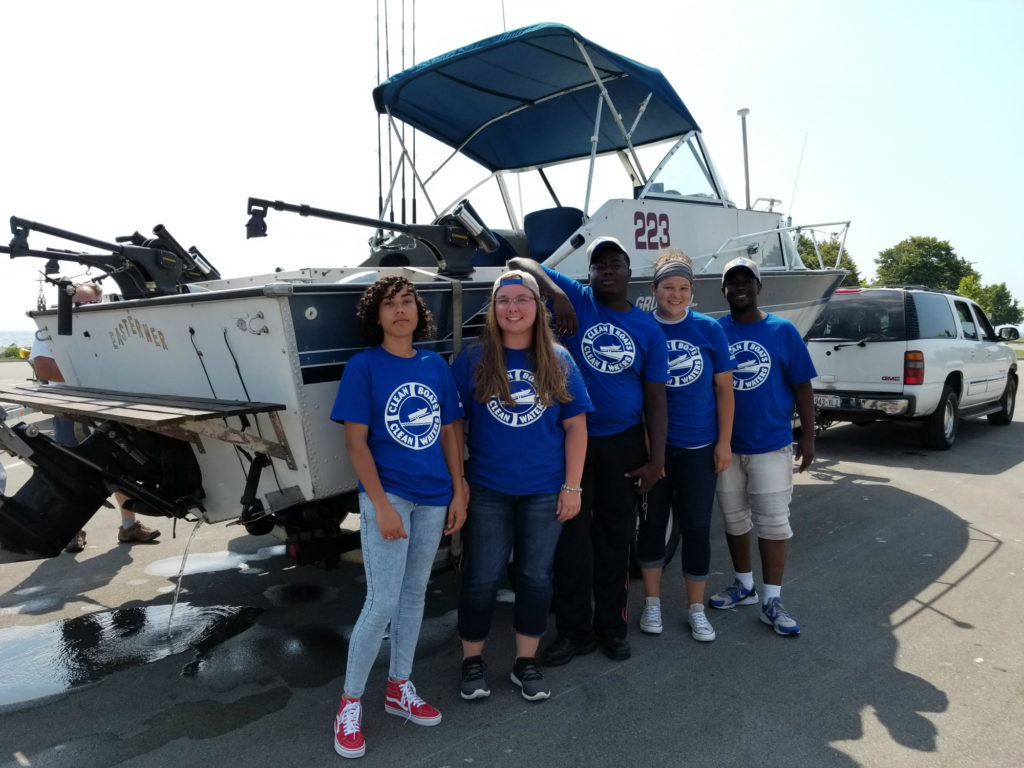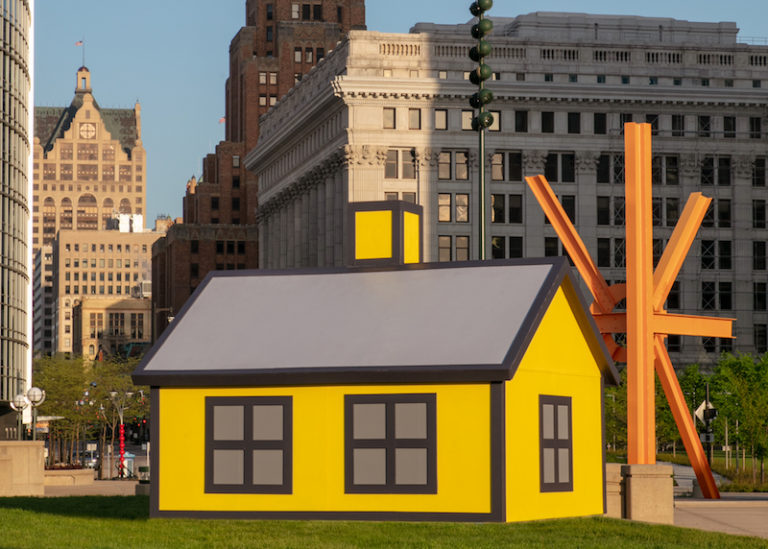Introduction
The Great Lakes inhabit more than 3,500 species of plants and animals, including more than 170 species of fish. The five Great Lakes, Superior, Huron, Michigan, Ontario, and Erie, account for one-fifth of the freshwater on the surface of our planet. Today, the Great Lake’s ecosystems have significantly changed due to aquatic invasive species such as Zebra Mussels, Quagga Mussels, Asian Carp, Purple Loosestrife, Sea Lamprey, and Eurasian Water Milfoil.
The Great Lakes Public Forum
The Great Lakes Water Quality Agreement calls for the U.S. and Canada to convene the Great Lakes Public Forum once every three years to discuss the state of the lakes and progress made under the Agreement, and to provide an opportunity for public input. Aquatic invasive species is a topic of priority on the agenda at the 2019 Great Lakes Public Forum that will be held in Milwaukee, Wisconsin. The forum will update the public on the current state of the Great Lakes and the progress that has been made so far. Plans for the next three years will also be made aware to the general public. There will be several topics discussed at The Great Lakes Public Forum which include lake-wide management, areas of concern, nutrients, invasive species, habitat restoration, chemicals of mutual concern, and discharges from vessels.
The GLCCC
The Great Lakes Community Conservation Corps, a non-profit organization with locations in Milwaukee and Racine, believes educating the public in Wisconsin about aquatic invasive species can help minimize their devastation on Great Lakes ecosystems. The Great Lakes CCC has been working hard and investing significant resources to spread awareness. It is placing urban youth on the front lines at public boat launches to interact with and educate watercraft owners about the impacts of transporting aquatic hitchhikers across water bodies. Expectedly, there has been a learning curve on both sides–among boaters and among our Corps members. For boaters, the introduction to young ambassadors from diverse ethnic backgrounds is foreign; Corps members have learned that water recreation enthusiasts value their time on Lake Michigan and are truly committed to protecting the Great Lakes and Wisconsin’s inland lakes by preventing the transport of aquatic species.
Community Knowledge
Beyond our intrastate work along Wisconsin’s front yard to Lake Michigan in southeastern Wisconsin, we are finding an uneasy interstate knowledge gap and dearth of commitment to Great Lakes protection among those separated by state boundaries. The distance in Racine and Kenosha from the Illinois state line is a relatively short bicycle ride. Yet, those who reside on the Illinois side of the state line anecdotally appear to be more acutely aware of the looming issue of Asian Carp. We’re finding the proverbial “not-in-my-backyard” effect among Wisconsin watercraft enthusiasts. When the Great Lakes CCC set up its “Asian Carp Experience” at the front entrance of the tailgating parking lot in Miller Park during the final Milwaukee Brewers-Chicago Cubs game of the season, the Illinois-based Chicago Cubs fans expressed a much higher level of awareness and sensitivity to the threat of Asian Carp than the Wisconsin-based Milwaukee Brewers fans in attendance. Corps members hosted an information booth, dressed in Asian Carp costume provided by the Illinois-Indiana Sea Grant Office, https://iiseagrant.org , blasted acoustic sounds representative of those considered disruptive to Asian Carp, and handed out grilled Asian Carp sliders to tailgaters in the parking lot as a means to introduce the issue and solicit feedback. Our primary research revealed that residents of Illinois were more knowledgeable of Asian Carp as an aquatic invasive species and a looming threat to the integrity of the Great Lakes ecosystem than residents of Wisconsin. It appeared the issues of managing Asian Carp were not a significant priority for those who have Lake Michigan as their front door to Wisconsin. It may be argued this outcome would be expected because the barrier to prevent Asian Carp is in Illinois. However, Kenosha and Racine sit immediately on the other side of the state line, and Milwaukee is a mere 90 miles away from Chicago. The Great Lakes CCC believes greater awareness about aquatic invasive species in general in Wisconsin will prove a crucial role in preventing their spread across our Great Lakes.
Aquatic Invasive Species
Aquatic invasive species have been entering the Great Lakes since the 1800s. According to the NOAA, The National Oceanic and Atmospheric Administration https://www.noaa.gov , over 180 invasive species have entered the Great Lakes, severely damaging the ecosystems within the lakes. Invasive species lack predators and the competitors of their homeland. This allows invasive species to reproduce and spread very rapidly, which then excessively consume resources in the lakes, and damage ecosystems. According to the Wisconsin Statute Section 23.22 (1) (c) “Invasive species are nonindigenous species whose introduction causes or is likely to cause economic or environmental harm to human health.” Species pass through canals, ballast water, or transfer through dirty trailers and boats. Controlling these aquatic invaders is difficult, eradicating them is nearly impossible. However, organizations are implementing programs and people are dedicating their time to further efforts in fighting these invaders.
Fighting Invasives on the Frontlines
Clean Boats, Clean Waters
In the summer of 2018, The Great Lakes Community Conservation Corps committed its army of young people to make a difference in the war against aquatic invasive species. The Corps decided it wanted to be upfront and personal in the fight against aquatic hitchhikers. The Great Lakes CCC crews were trained by NOAA Sea Grant and its affiliate at the UW Sea Grant Office for the Clean Boats https://www.seagrant.wisc.edu , Clean Waters (CBCW) program https://dnr.wi.gov/lakes/cbcw/ . Clean Boats, Clean Waters is a program designed to stop the spread of aquatic invasive species through the Great Lakes by fighting them head on. Clean Boats, Clean Waters is the cornerstone of the Wisconsin Department of Natural Resources program to prevent these exotic species from spreading. The training consists of educating people on the invasive species within the Great Lakes, and directing them with actions that can be taken to prevent spreading. Under the CBCW program, representatives are placed at local public boat landings throughout Wisconsin. The Great Lakes CCC teams have been initially stationed along the Lake Michigan shoreline at the public boat landings in Pershing Park (Racine) and Simmons Island (Kenosha).
Weekly, Corps members spend approximately 24 total hours at each public boat launch site examining boats for invasive species, reminding boaters to empty ballast water, conducting surveys, and educating boaters on invasive species within our the Great Lakes as well as Wisconsin’s inland lakes. Boaters receive instruction how to clean their boats and trailers properly, how to prevent the spread of invasive species, and how to educate other boaters about preventing the spread of aquatic invasive species. We find that boaters and other watercraft recreation users are happy to talk and learn about why invasive species are an issue to our lakes.
By the time the summer’s end nears, crews are able to observe the fruits of their efforts: boaters and water recreation enthusiasts recognize the CBCW crew members–often by name; they take the initiative to empty ballast water, hose down their watercraft, and even talk to other boaters about the aquatic invasive issues. It is rewarding to see boaters become stewards.
Fighting aquatic invasive species is very difficult. Thanks to the NOAA Sea Grant, the Corps plays a vital role in spreading awareness about aquatic invasive species and preventing their spread throughout our lakes. Clean Boats, Clean Waters is not the only program to fight aquatic invasive species; there are others where individuals are trying to maintain the integrity of local waters. Anyone can help in the fight against aquatic hitch-hikers.
What You Can Do to Help
There are several things you can do to help save our Great Lakes from aquatic invaders. Become familiar with aquatic invasive species. Do your research. There are hundreds throughout the Great Lakes and each one has a brutal effect on the health of the Great lakes. Knowing the basics about some of them can help efforts in preventing the spread. Sign up and volunteer for programs that prevent the transfer of aquatic invasive species. Volunteer for Clean Boats, Clean Waters, or other programs available in your community. Clean off your boats and trailers, and empty ballast water after removing your watercraft from the water. Rinsing off your boat and trailer, and emptying ballast water is one of the simplest things you can do to prevent the spread of aquatic hitchhikers.
Let’s protect our Great Lakes! Volunteer efforts play a vital role in the fight against aquatic invasive species!
Contact the GLCCC to learn more. Call (262) 880 4811, email us at investinyouth@wi.rr.com, or visit us at https://www.greatlakesccc.org/

